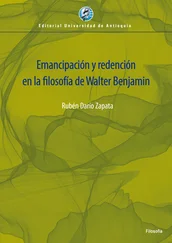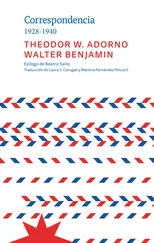LICHTENBERG: I don’t mind letting you in on a little story. I indulged myself in a joke; but it has to remain between us.
PüTTER: Discretion is part of my job.
LICHTENBERG: I know. Even so, I wouldn’t dare to tell you if I didn’t know that we hold the same opinion of Lavater’s theory of physiognomy, which has become quite the rage these days.
PüTTER: What surprises me about Herr Lavater is that he, so attentive to the signs that allow character to be intuited, should have failed to notice that people who write the way he does are absolutely not to be believed. We, however, know that the manner in which a testimony is presented can sometimes be more important than the testimony itself. 21
LICHTENBERG: All right then, listen to my story. Circumstances, which I do not wish to touch upon here, made it possible for me to send the silhouette of this monster, whom they are finishing off out there, to Lavater. And I did it in such a way that he neither knew who was portrayed, nor that I was the one who sent it. And now, listen to his response; I carry it with me. Such a leaflet is worth more than a kingdom.
PüTTER: Let’s hear it.
LICHTENBERG: This profile undoubtedly belongs to an extraordinary man who would have been great if he had a little more mental acumen and more heartfelt love. Whether I err in thinking I have discovered in him the aptitude and inclination for the establishment or dissemination of a religious sect is an open question. I can say nothing more. That is already too much.
PüTTER: I never heard a truer word. That’s a fortunate experiment you did with the physiognomist.
LICHTENBERG: If physiognomy becomes what Lavater expects it will, then children will be hanged before they have done the deeds that deserve the gallows. 22
PüTTER: But perhaps we shouldn’t speak of the gallows here, so near the gallows’ mound.
LICHTENBERG: I am glad that the noise has moved on. I still shudder when I think back to the morning when I saw, for the first and last time, someone who was awaiting the gallows. It was in front of the court of assizes in London. The poor fellow stood in front of the jury, and as they read the death sentence, the Lord Mayor of London was sitting there reading the newspaper. 23
PüTTER: I think it’s time to depart. The moon is already shining through the window.
LICHTENBERG: A waning moon, and murky as well. There is nothing I hate more than the sight of the moon when it…
QUIKKO: Gentlemen, you hear the attacks that Herr Lichtenberg is just about to make against us. It is beneath our dignity to follow this any longer. I am switching it off.
LABU: Without wishing to condone the impulsive actions of our esteemed colleague Quikko, I will now give the floor to Mr. Peka for his observations.
PEKA: Esteemed sirs, you will all have noticed that the Spectraphone’s images were clearer than ever this time, perhaps as a consequence of the thunderstorms that purified the Earth’s atmosphere. We all had time for a close look at Herr Lichtenberg, and I think I speak for all of you when I say: We can rest assured that the solution to our problem is closer than we suspected. Herr Lichtenberg is an unhappy character. Not because of the external circumstances that keep him in Göttingen, not because of his inner constitution that has turned him into a hypochondriac, but quite simply because of his appearance. It cannot have escaped you that he is a hunchback. Yes, gentlemen, it’s easy to explain why a hunchback has nothing good to say about the science of physiognomy. He has scarcely any other choice but to form his own opinion about everything, because he cannot agree with public opinion on at least one very important point, I mean as far as the hunch is concerned. We should also not be surprised to hear him speak ill of Lavater, as of enthusiasts and geniuses. Anyone whose physique invites criticism such as his does is left with no choice but to go on the defensive as a critic himself.
LABU: We thank Mr. Peka for his clear and timely explanations. But whether he is correct to say that such a hunchback is entirely incapable of enthusiasm or surges of feeling is something we should put to the test.
SOFANTI: A report has just come in from Venus about an occurrence that I consider of great interest to us. The fifty-year-old Lichtenberg, that enemy of sentimentalists, who has been loyal to reason his entire life, is about to betray it with the Muse. He is composing verse, that is to say, he is declaiming.
LABU: A welcome opportunity to deploy our Parlamonium. We will listen to the beginning of this poem and then translate it into music.
SOFANTI: Quiet, please.
The gong sounds.
LICHTENBERG ( in a stately voice unlike his usual tone ): What if at some point the sun did not return, I often thought, if I awoke in a dark night and was glad when I finally saw day break again. The deep stillness of early morning, the friend of reflection, combined with the feeling of increased strength and renewed health awoke in me then such a powerful trust in the order of nature and the spirit that guides it, that I believed myself as secure in the tumult of life as if my fate lay in my own hands. I thought then that this sensation, which you can neither force to come about nor feign and which grants you this indescribable feeling of well-being, is certainly the work of precisely that spirit, and it loudly tells you that now, at least, you think correctly. Oh, do not disturb with guilt this heavenly peace within, I then said to myself. How would this dawning day break for you, if this pure mirror-brightness of your being no longer reflected it into your interior? What else do you expect from the music of the spheres, if not these contemplations? What else is the chiming together of the planets but the expression of this certainty, which the spirit, at first with a storm of raptures, then gradually more and more— 24 The recitation has already been undercut with music and at this point it changes into the melody of a hymn, perhaps one by Haydn or Handel. After a while, this music changes into a funeral march.
FIRST CITIZEN: Quite a splendid cortege.
SECOND CITIZEN: Hush, you’re not allowed to talk here in the funeral procession. Wait until we’re there.
FIRST CITIZEN ( more quietly ): It’s quite a splendid cortege, is what I wanted to say. When I think back to the time they buried Bürger here. Three men followed the coffin: Professor Althof—
SECOND CITIZEN: Shh, you’ll get us into trouble.
FIRST CITIZEN: Now the head of the procession has already arrived. The music will stop soon, and then it’ll get serious. Speeches will be made.
THIRD CITIZEN: He’s said to have believed in the transmigration of souls. I heard it from Poppe the mechanic himself, he’s the one who built him his instruments.
SECOND CITIZEN: Do you see where I’m pointing? Do you know what it is?
FIRST CITIZEN: That’s impossible. You’re right. His window. So he could look down from his laboratory at his grave site. That’s what I call having all your affairs in order.
THIRD CITIZEN: He’s said to have stood at that window and watched Bürger’s burial through a telescope. But when he saw the hearse rolling through the churchyard gate, his servant, who was in the next room, could hear sobbing. He could not bear to watch the body being taken off the wagon. He closed the shutters and shut the window. 25
SECOND CITIZEN: His whole life he flirted with death. This happened seven years ago, but I remember it as if it were yesterday. “The angels have let me know for some time in no uncertain terms that they feel a strong inclination to haul me to the churchyard in a small, portable house as soon as possible.” 26Yes, he wrote that to me seven years ago.
Читать дальше












